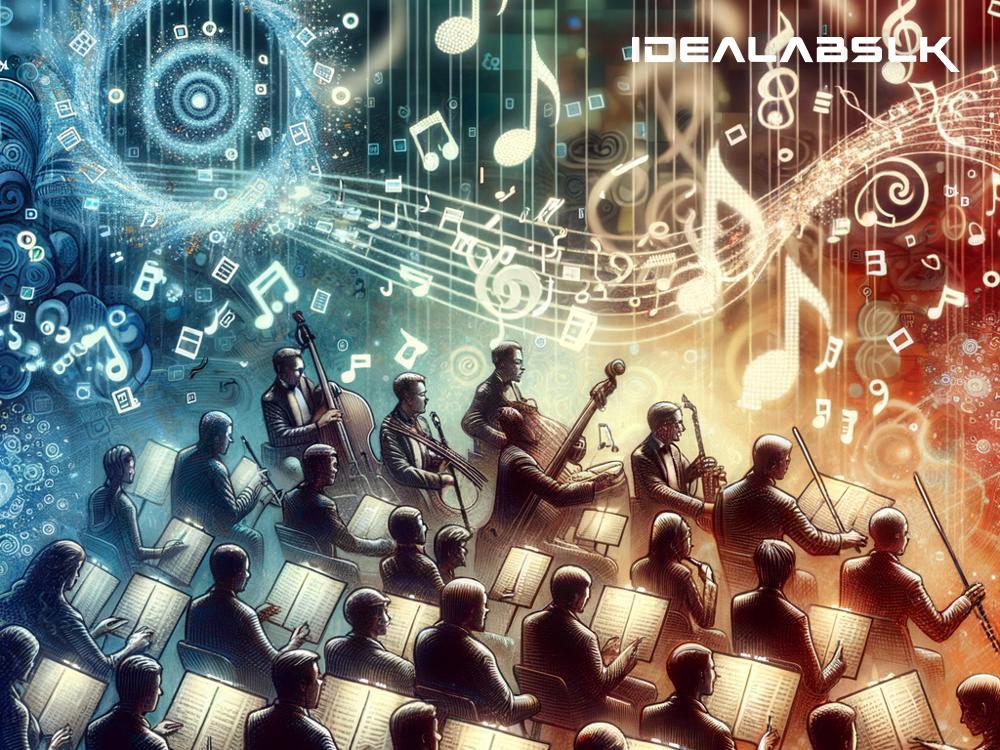Exploring the Rhythm of Innovation: How Blockchain is Tuning Up Music Rights
In the age of digital streaming and instant access to millions of songs at our fingertips, it's easy to overlook the complex melody of technology and law that plays in the background. This unseen harmony ensures artists get credit and compensation for their creativity. Enter the stage, blockchain technology, a revolutionary system you've probably heard of in the context of cryptocurrencies like Bitcoin. But how exactly does this technology strike a chord with music rights? Let’s break it down in simple English.
The Old Tune: Challenges in Managing Music Rights
Before we dive into the blockchain symphony, let’s understand the old tune—the traditional process of managing music rights. Imagine a world that’s a vast library of songs, where each piece of music is a book, but the system to track who owns what, who wrote which melody, or who sang which verse, is a bit disorganized. This has been the music industry's reality for quite some time. Artists, songwriters, and producers often find it challenging to get paid fairly because it's hard to track where and how their music is used.
The New Rhythm: Introduction to Blockchain
Blockchain is like a highly efficient, transparent, and secure ledger. Imagine it as a record book that keeps track of transactions, but once something is written in it, it cannot be altered or deleted, making it extremely trustworthy. This technology isn’t just for digital currency anymore—it’s tuning up various industries, including music.
How Blockchain Hits the Right Notes with Music Rights
-
Transparency and Efficiency: By using blockchain technology, every time a song is streamed or downloaded, this transaction is recorded in a block. Imagine each block as a digital stamp, which provides clear, transparent, and unchangeable data about who listened to what song, when, and where. This makes the process of paying royalties much more straightforward and accurate.
-
Direct Payments: With blockchain, the middlemen in the music industry (like record labels and streaming services) can step aside, allowing artists to receive payments directly from their fans. This direct line not only ensures artists get a fairer share of the income, but it also tightens the bond between musicians and their supporters.
-
Smart Contracts: These are self-executing contracts with the terms of the agreement directly written into code. In the context of music rights, this means that payments to artists can be automated. So, if you’re a songwriter, every time someone covers your song on a streaming platform, a smart contract can instantly calculate and transfer the royalties to you.
-
Proof of Ownership: Blockchain creates a tamper-proof, time-stamped record of every song ever created, effectively solving the problem of music piracy and unauthorized use. Artists can easily prove ownership without going through lengthy and costly legal battles.
Real-World Harmony: Blockchain in Action
Several startups and projects are already experimenting with blockchain to solve the music industry's complex puzzles. Companies like Audius and Mycelia are pioneering the way by creating platforms that allow artists to publish their works, set their own pricing, and directly engage with their audience—all backed by the solidity and transparency of blockchain technology.
Final Thoughts: The Future of Music Rights with Blockchain
The convergence of blockchain and music rights is like a new genre of innovation emerging at the horizon. It promises a future where disputes over royalties become a thing of the past, where artists get their fair share, and where fans can directly support the creators they love. However, as with any technology, the road to a fully blockchain-powered music industry has its hurdles. It requires widespread adoption, changes in legal frameworks, and overcoming technical challenges.
Nevertheless, as the technology matures and more stakeholders join the bandwagon, the chances of seeing a music industry that’s fair, transparent, and efficient increase. The harmony between blockchain and music rights might just be the tune we’ve all been waiting to hear, resonating with the promise of a balanced and harmonious future for artists and fans alike. This new rhythm of innovation, with blockchain as its backbone, is set to transform the music industry, striking a chord with fairness, transparency, and direct artist-fan connections.

